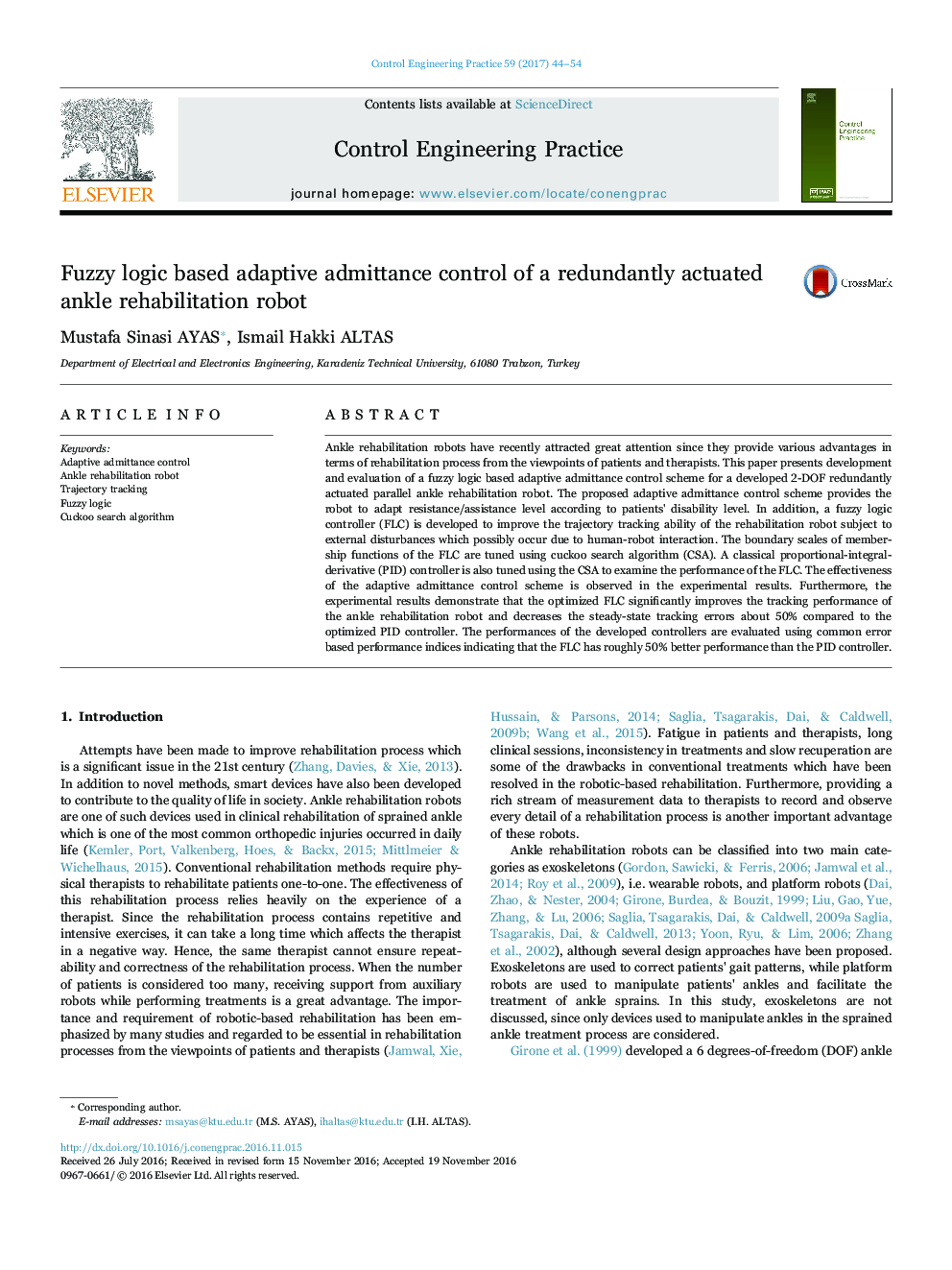| Article ID | Journal | Published Year | Pages | File Type |
|---|---|---|---|---|
| 5000425 | Control Engineering Practice | 2017 | 11 Pages |
Abstract
Ankle rehabilitation robots have recently attracted great attention since they provide various advantages in terms of rehabilitation process from the viewpoints of patients and therapists. This paper presents development and evaluation of a fuzzy logic based adaptive admittance control scheme for a developed 2-DOF redundantly actuated parallel ankle rehabilitation robot. The proposed adaptive admittance control scheme provides the robot to adapt resistance/assistance level according to patients' disability level. In addition, a fuzzy logic controller (FLC) is developed to improve the trajectory tracking ability of the rehabilitation robot subject to external disturbances which possibly occur due to human-robot interaction. The boundary scales of membership functions of the FLC are tuned using cuckoo search algorithm (CSA). A classical proportional-integral-derivative (PID) controller is also tuned using the CSA to examine the performance of the FLC. The effectiveness of the adaptive admittance control scheme is observed in the experimental results. Furthermore, the experimental results demonstrate that the optimized FLC significantly improves the tracking performance of the ankle rehabilitation robot and decreases the steady-state tracking errors about 50% compared to the optimized PID controller. The performances of the developed controllers are evaluated using common error based performance indices indicating that the FLC has roughly 50% better performance than the PID controller.
Related Topics
Physical Sciences and Engineering
Engineering
Aerospace Engineering
Authors
Mustafa Sinasi AYAS, Ismail Hakki ALTAS,
